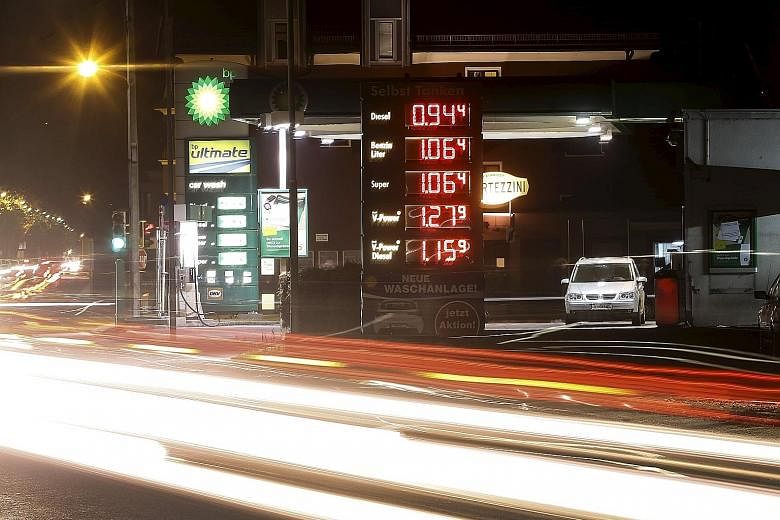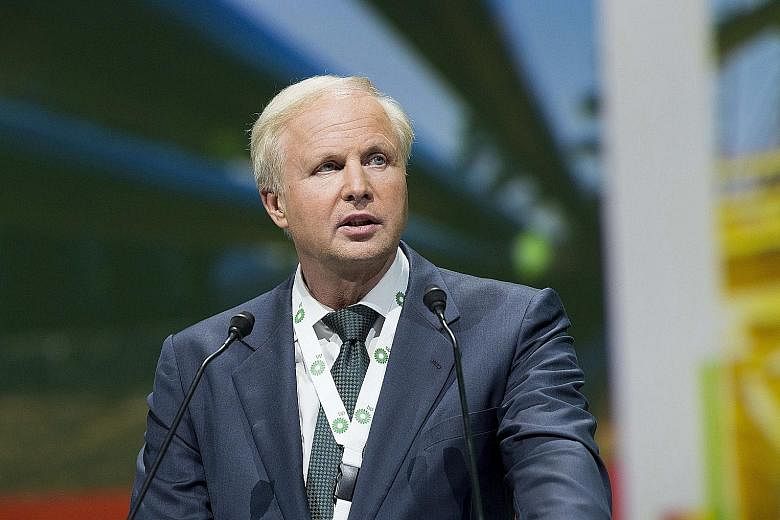LONDON • BP shareholders voted yesterday to oppose chief executive Bob Dudley's US$20 million (S$27 million) pay package for 2015, the rare revolt reflecting outrage after the British oil and gas company recorded its biggest annual loss.
Just over 59 per cent of shareholders voted against the package in stark contrast with previous years when at times up to 90 per cent voted in favour of high pay packages.
Mr Dudley was due to receive 20 per cent more in 2015 than in 2014 even though shrinking profit margins triggered by sharp falls in the price of oil led to more than 5,000 job losses at the company last year.
Although the vote is non-binding, BP executives said they would consider it very seriously and were planning to review the remuneration mechanism in the next few months and possibly link it to oil prices.
BP has long argued that executive rewards should be based on a combination of factors including cash generation and operational performance. Last year, Mr Dudley also clinched a final settlement with the US authorities over the 2010 Gulf of Mexico spill, which many investors said at the time removed uncertainty about the firm's future.
The shareholders nevertheless revolted against the pay package. Britain's biggest mutual life and pensions fund, Royal London, and two shareholder advisers, Institutional Shareholder Services and Glass Lewis, had recommended rejecting it.
"This is a significant vote. It gives the board an opportunity to reflect on remuneration policy. The commitment to talk to shareholders (about remuneration) is important," said Mr Adam Matthews, head of the Church of England's Secretary of the Ethical Investment Advisory Group. The Church of England is a BP shareholder.
"We will review remuneration policy to see how we can simplify it while retaining a strong link to long- term performance," said Ms Ann Dowling, head of BP's remuneration committee. "Shareholder criticism raises some fundamental question around our policy and we will consider those in the coming months."
Meanwhile, the company - which reported a US$6.5 billion loss last year - said it aimed to maintain dividend payments as long as investments were not compromised.
"Our goal is to maintain the dividend, but at the same time we must secure the future by investing wisely," chairman Carl-Henric Svanberg said at the annual general meeting yesterday. "Should the oil price remain lower longer than expected, we will need to revisit our financial framework."
The company kept its quarterly payout at 10 cents a share when it reported results in February.
Its ratio of net debt to equity jumped to 21.6 per cent at the end of 2015, an increase of almost 5 percentage points from a year earlier.
Europe's biggest energy firms are striving to keep paying dividends. Companies such as BP, Royal Dutch Shell and Total have reduced spending, sold assets and even issued scrip dividends in lieu of cash to keep shareholders happy amid the worst oil rout in a generation. Yet those efforts have not prevented shares from underperforming, with BP stock having fallen 23 per cent over the past year.
REUTERS, BLOOMBERG


